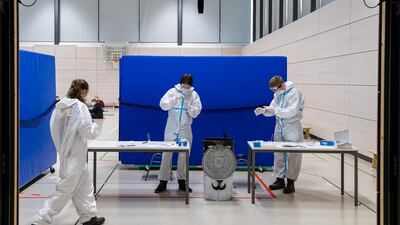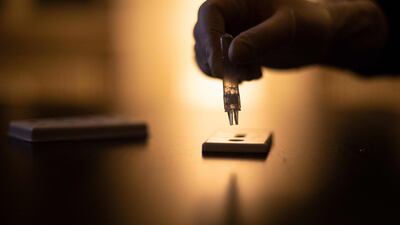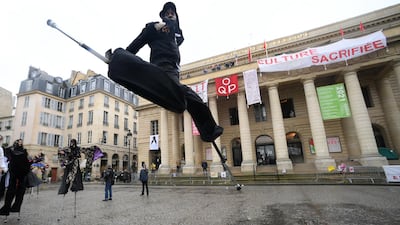The EU on Wednesday proposed a Covid-19 vaccine passport in a push to resume summer travel.
European Commission chief Ursula von der Leyen announced a plan to create a “digital green certificate” to show at airports and border crossings to prove a traveller has been immunised.
The idea is to allow inoculated tourists to bypass restrictions on non-essential travel in place across Europe.
“With this digital certificate we aim to help member states reinstate the freedom of movement in a safe, responsible and trusted manner,” Ms von der Leyen said.
Because Britain left the EU, member states would need to permit its citizens to enter the bloc.
UK Business Minister Kwasi Kwarteng said the government was reviewing the concept of vaccine certificates to allow access to travel, hospitality and entertainment.
“With international travel, you’re dealing with other countries and they will have their own input into what policies you have,” he told broadcaster ITV.
UK cruise line P&O said on Tuesday that only those who have had both doses of the vaccine would be accepted on its trips around Britain this summer.
The EU certificate, available free of charge as a QR code or in physical form, will also show whether the traveller has tested negative for Covid-19 or recently recovered from the disease, and therefore has antibodies.
The plan, to be discussed at next week's EU leaders summit, has been pushed by tourist hot spots such as Greece and Spain, which want it to be introduced in time for summer.
But the proposal is likely to face resistance from many member states, a key concern being that those yet to be immunised would be discriminated against.
France said it would be premature to introduce such passes because most EU citizens have not yet been offered shots.
Europe is trailing the US and Britain in its inoculation campaign, with deliveries of doses delayed and some countries worried about the safety of AstraZeneca’s vaccine.
According to the European Centre for Disease Prevention and Control, less than 5 per cent of the EU’s population has been fully inoculated.
The European Commission, the bloc’s executive arm, said its plan would make it easier for citizens of member states to exercise the “fundamental right to free movement in the EU”.
“This applies regardless of whether they are vaccinated or not,” it said.
“The Digital Green Certificate will make it easier to exercise that right, also through testing and recovery certificates.”
The commission proposed that all vaccines approved by the European Medicines Agency should be recognised automatically.
It offered governments the possibility to include vaccines such as Russia's Sputnik V, which is not authorised for the EU but is being used in member states Hungary and Slovakia.
The European Commission guaranteed that “a very high level of data protection will be ensured” and said the certificates would be issued in digital form to be shown on smartphones or paper.
The commission said the certificates should be suspended once the World Health Organisation declares the end of the pandemic.
If agreed to by EU leaders, the proposal will have to be approved by EU legislators.












